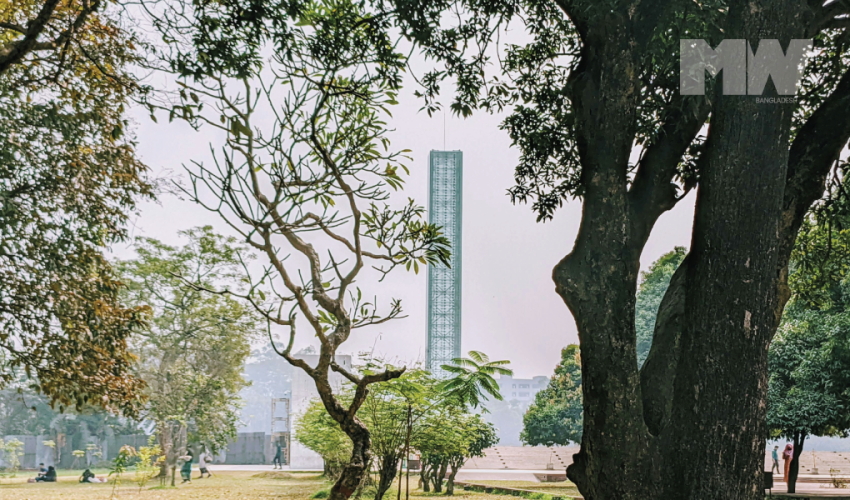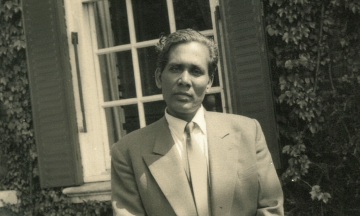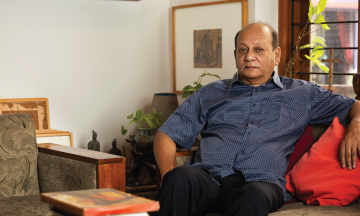Abak Hussain
March 26, 1971 is marked as the Independence Day of Bangladesh – a national holiday and one of the busiest and most significant days for citizens. On this day, programs and parades take place throughout the country, special editions are often published by newspapers, special programs broadcast by TV channels, and traffic advisories are issued due to the huge amount of VIP movement across the capital.
Independence Day, or Shadhinota Dibosh, in our case commemorates the declaration of independence, the official beginning of the Liberation War, and the beginning of a process that would culminate nine months later on December 16 – a day known as Victory Day – in the full realization of our statehood. As we mark the day – indeed the entire of month of March with due solemnity – it is worth taking a quick look around the globe at a few other independence days … (or lack of them!) … for a bit of perspective in an increasingly interconnected world.
United Kingdom
It is a common joke that the UK does not have an independence day because it is other countries which celebrate independence days from the UK. While said in jest, this statement is pretty close to the truth. In fact, Wikipedia has its own article titled “List of countries that have gained independence from the United Kingdom” which states that 65 countries have, at some point or other, claimed independence from the UK, or more accurately what might be called the British Empire.
The UK and Denmark are the only countries without an official “national day,” in fact. There was a time when the UK celebrated something called “Empire Day” but for obvious reasons that no longer sounds good, so that occasion morphed into “Commonwealth Day” celebrated on the second Monday of March, but when was the last time you paid any attention to Commonwealth Day? Exactly. The day is largely ignored within the so-called Commonwealth.
What else could qualify as a national day for the UK? Well, there is the official birthday of the monarch, falling in June (note the actual birthday of King Charles is in November so the two dates are not the same thing), but the date is probably not all that important to British citizens except fervent monarchists. A few other dates have been proposed as a possible national day. An interesting contender is the anniversary of the Battle of Hastings, which took place on October 14, 1066. The origin story of what we now call the United Kingdom is long, messy, and maddeningly complicated, but William the Conqueror’s successful invasion is as good a date as any to mark some sort of a beginning.

East Timor
From one of the oldest continuous nations in the world, we move to one of the youngest. Many will remember watching on TV the news of the restoration of independence of East Timor, which took place on May 20, 2002. The struggle for independence, though, goes further back – the declaration of independence for East Timor from Portugal took place way back on November 28, 1975.
The trouble is, the small nation was immediately annexed by neighbouring Indonesia, and East Timor (Timor-Leste) was incorporated as a province of Indonesia. The legacy of the years that followed is complicated. Many argue that Indonesia indeed developed East Timor economically in a way it could not have done on its own, investing in infrastructure and trying for peace. Still, the fact remains that there was tremendous dissatisfaction among the East Timorese, and conflict broke out frequently. Between East Timor’s independence from Portugal in 1975 until 1999, when in a UN-sponsored referendum the East Timor population voted for independence from Indonesia, it is estimated there were a staggering 102,800 conflict-related deaths. 18,600 people were killed, and over 84,000 people died as a consequence of the conflicts, through illness or hunger.
But fate never seems to allow the East Timorese to celebrate for too long. Just as the celebrations of independence from Portugal were short-lived, after the referendum victory, East Timor’s joy turned to ashes, as anti-independence Timorese militia embarked on a fresh wave of violence, killing 1,400 and displacing roughly 300,000 into West Timor. Much of the country was razed to the ground. The peacekeeping force INTERFET, led by Australia, intervened, and following a period of transition, finally in 2002, East Timor was fully recognized as an independent nation. It is still plagued by problems, and is the poorest nation in Southeast Asia.
Singapore
From the poorest country in Southeast Asia, we jump to the richest (per capita). Singapore is a case study in how a country, with smart policies and a clear vision for itself, can outshine its former ruler. The proclamation of Singapore took place on August 9, 1965 and the island nation-state separated from Malaysia. However, the two countries still enjoy strong economic and cultural ties.
Just a couple of years prior, on July 9, 1963, the Malaysia Agreement had been signed by the leaders of Malaya, Sabah, Sarawak, and Singapore. Malaysia was scheduled to be born on August 31, 1963, but the birth of nations, as we know from the history of our own region in the sub-continent, is never a clean-cut thing, and so, on the very day of Malaysian independence, Lee Kuan Yew, addressing a crowd at the Padang in Singapore, declared independence for Singapore. The picture was further complicated by Indonesia’s objection to the formation of Malaysia, and Tunku Abdur Rahman first wanted to ensure the merger of North Borneo and Sarawak. Lee Kuan Yew now proclaimed Singapore to be part of Malaysia, but asked for an equitable relationship. The formation of Malaysia from the beginning was a bit problematic politically as well as culturally. Singapore saw an escalation of racial tension, where non-Malay groups such as the ethnic Chinese accused the Malays in power of discriminatory policies. Some of these tensions exist in Malaysia even today. Indonesia took the opportunity to poke into the region’s affairs, pitting the Malays against the Chinese.
Things reached a boiling point in the 1964 race riots where 23 people were killed and hundreds were injured. The economy and infrastructure of Singapore were in utter chaos. On August 9, 1965, Singapore was expelled by the Parliament of Malaysia, avoiding bloodshed being perhaps the key reason. If there were any doubts at the time whether independence would be a good thing for Singapore, those doubts are certainly long gone after Singapore’s stellar performance on the world stage.
South Sudan
From safety and prosperity, we cross over to the other end. Almost everyone reading this will remember first-hand the independence of South Sudan from the Republic of Sudan, which took place on July 9, 2011. The Sudanese region has been tragically beset by conflict as far as anyone can remember, and going down the rabbit-hole of Sudanese history with its many dimensions is beyond the scope of this listicle. So we will have to oversimplify, and settle for an incomplete picture.
In 2005, an agreement was signed, with mediation from a number of Western nations, to end the Second Sudanese Civil War. The agreement formed the South Sudan Autonomous Region, and paved the way for a referendum on independence for South Sudan. This referendum took place in January of 2011. An overwhelming 99% of voters turned out, nearly all of them voting for independence. On July 9, 2011, South Sudan became an independent nation, and was quickly recognized by the United Nations as a member state as well as the 54th member of the African Union. Plenty of conflict was still brewing, though, such as the dispute over the Abyei area, which resulted in clashes between Sudanese and South Sudanese forces. Ethiopian forces had to enter the region to stop the situation from worsening further.
Ethnic violence in the country is still common, with villages being burnt down, rape, the murder of civilians, and torture being commonly used tactics. At the time of independence, the South Sudanese government was in conflict with at least seven armed groups. So while South Sudan may have earned its independence – certainly a victory for the segments that benefited or profited from it – for its people and the country at large, the battle for peace and stability is far from over.













